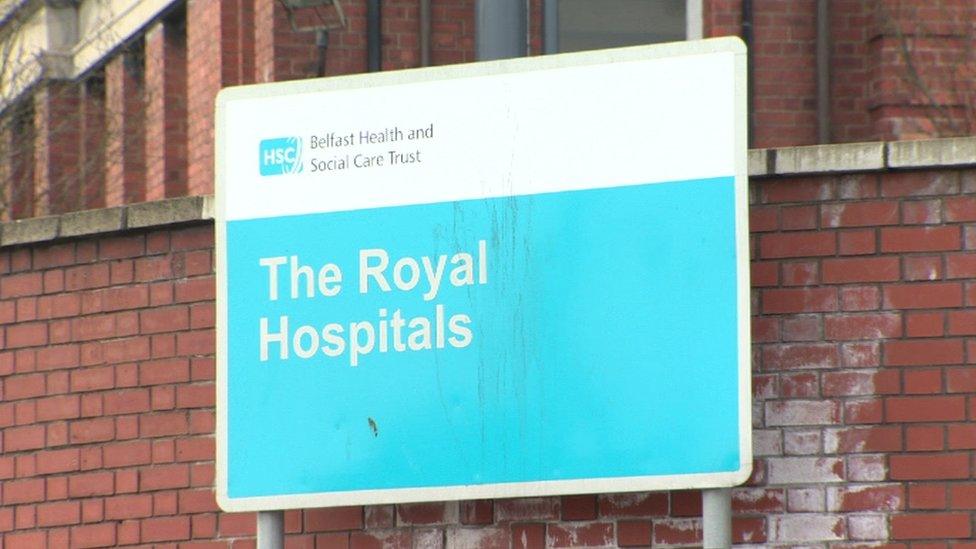Dr Michael Watt: Sufficient evidence to examine skill of Belfast neurologist
- Published

Dr Watt worked at the Royal Victoria Hospital as a neurologist
Evidence exists to justify examining the clinical skills of Dr Michael Watt, the medical regulatory body has said.
In 2018, about 3,000 patients were recalled as part of an investigation into the work of neurologist Dr Watt at Belfast's Royal Victoria Hospital.
The General Medical Council (GMC) said in a statement it is contacting the patients concerned to update them.
Dr Watt, who is employed by the Belfast Health and Social Care Trust, remains suspended.
He was suspended amid concerns over possible misdiagnoses.
Neurology is the treatment of brain conditions, including MS, Parkinson's, stroke and motor neurone disease.
'Distressing and vulnerable time'
"This has been a deeply distressing and vulnerable time for many patients and families," said a spokesperson for the GMC.
"Our sympathy goes out to these affected, and we know how difficult it has been for those awaiting answers.
"We believe we have sufficient evidence to progress our primary case relating to the doctor's clinical skills, in order to protect future patients."
The council said when a complaint it received meets its threshold for investigation, it would first "pursue those that are the most likely to demonstrate impaired fitness to practice".
"In some instances, we will pause investigations until the conclusion of our primary case."
A report in December into the recall found 68% of patients had a diagnosis that was considered to be secure.
Of the 2,952 patients assessed, 617 had a diagnosis that was considered not to be secure.
For 329 patients "there was uncertainty in respect of whether the previous diagnosis was secure".
'Acting in the best interests of my patients'
After a BBC spotlight investigation interviewed a number of Dr Watt's patients, he issued an apology.
"Patient care has always been of the utmost importance to me and the key focus throughout my career," he said.
"I have always sought to act in the best interests of my patients.
"Current investigations have highlighted concerns over the security of a number of my patients' diagnoses.
"I recognise the considerable distress these events have caused and I can only express my sincere sympathy to any of my patients affected as a result."
The GMC can refer a doctor to the Medical Practitioners Tribunal Service for an interim orders tribunal at any point during an investigation.
This is a process which temporarily restricts a a doctor's registration while an investigation takes place.
This can be done if it is necessary for the protection of the public, or otherwise in the public interest or in the interests of the doctor.
This measure was taken against Dr Watt in January 2019.
- Published19 December 2019
